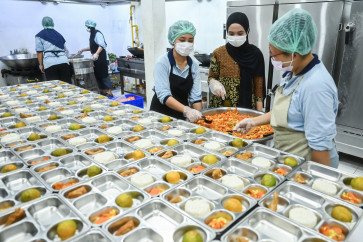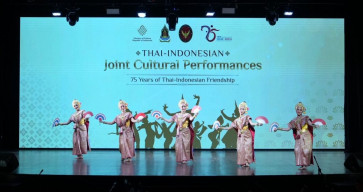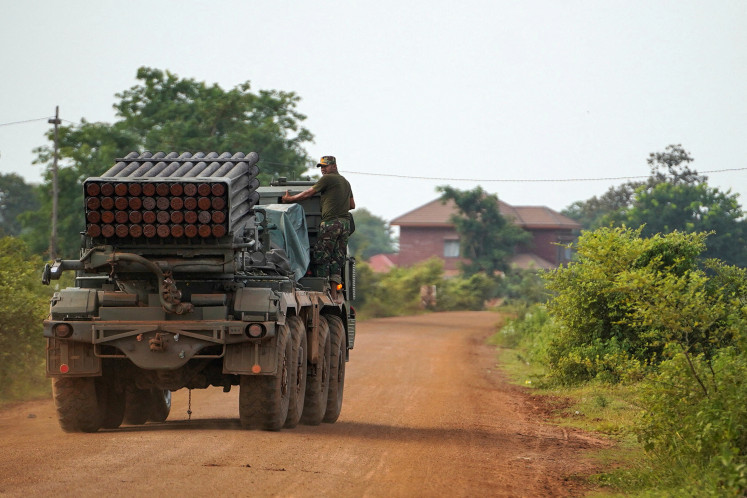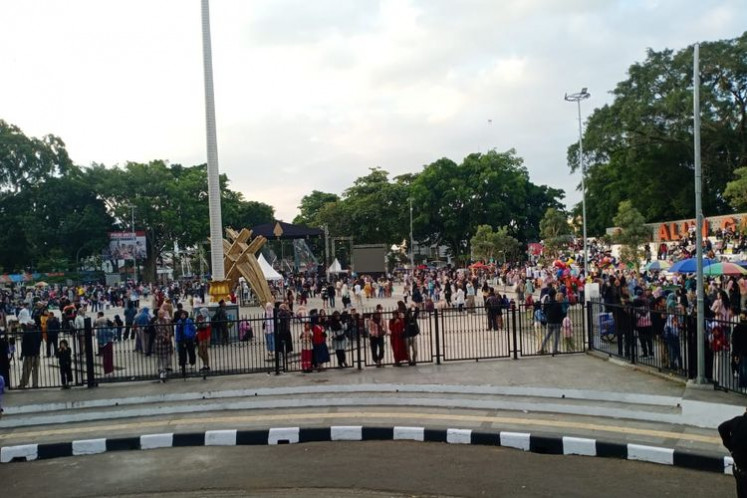Popular Reads
Top Results
Can't find what you're looking for?
View all search resultsPopular Reads
Top Results
Can't find what you're looking for?
View all search results2011 Reports: Central Java records over 500 natural disasters
As many as 511 natural disasters took place across the Central Java province during 2011, with droughts, landslides and floods topping the list of occurrences, according to authorities
Change text size
Gift Premium Articles
to Anyone
A
s many as 511 natural disasters took place across the Central Java province during 2011, with droughts, landslides and floods topping the list of occurrences, according to authorities.
Provincial Disaster Management Agency (BPBD) head Sarwa Pramana said the disasters occurred almost evenly in the province’s 35 regencies/municipalities.
The recent landslides and floods in Pati and Wonosobo regencies, which claimed 10 lives, were among the worst disasters.
“Nationally, Central Java had the second-highest occurrence of disasters,” Sarwa said on the sidelines of a hearing with the provincial legislative council at the governor’s office in Semarang recently.
Sarwa said people’s attitudes toward the environment contributed to the disasters.
He pointed to the landslides and floods in Pati and Wonosobo as an example.
He said the sites were supposed to be water catchment areas, but in fact, they were turned into barren areas by the lack of discipline from the community to reforest the areas.
Separately, Deputy Governor Rustriningsih said that disaster management required solid cooperation between the regency/municipal administrations and the provincial one.
“The Law stipulates that disaster management is the domain of the regency/municipal administrations. The provincial administration just provides backup, especially in term of funding,” she said.
The provincial administration has increased the allocation for disaster management in its 2012 budget from Rp 11 billion (US$1.21 million) to Rp 17 billion. This excludes funds allocated by respective regency/municipal administrations and the central government for the same purpose.
Rustriningsih also highlighted the need for empowerment activities that would help people be more resilient to disasters in the future.
Chairman of the provincial legislative council’s Commission VIII overseeing the issue, Abdul Kadir Karding, emphasized the need to seek more sustainable solutions in disaster management.
He said that a recent field visit conducted by his commission to a disaster site in Wonosobo showed that relocation might be an option for the residents living on the prone-to-disaster areas.
“The problem is the affected residents would for sure say no to such a solution mostly for both cultural and economic reasons,” he said.
“They already feel comfortable with the place that is suitable to grow potatoes as their source of livelihood.”
He underlined the need to see the problem from both economic and cultural viewpoints and encouraged local administrations and community figures to keep persuading the people living in those prone-to-disaster areas to consider relocation.
“Relocation has to be conducted by offering them better compensation,” he said.










